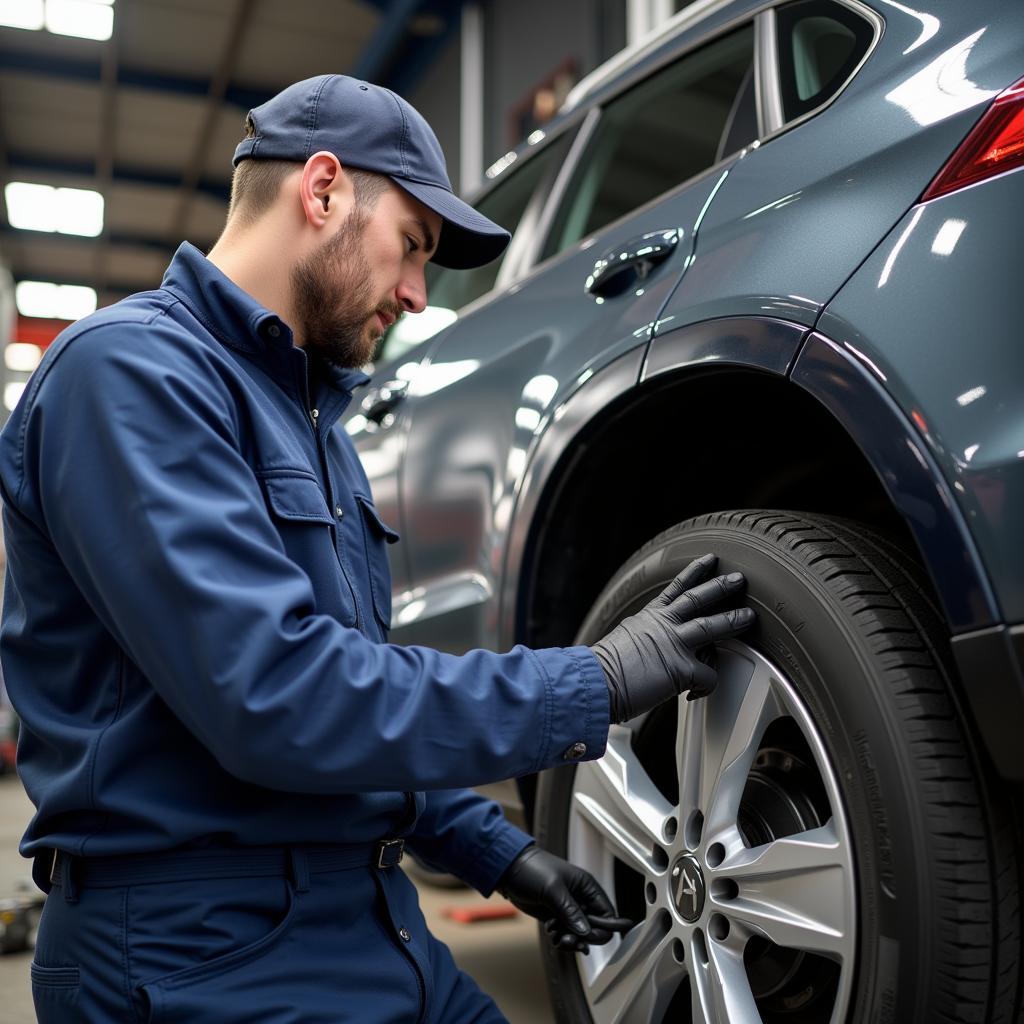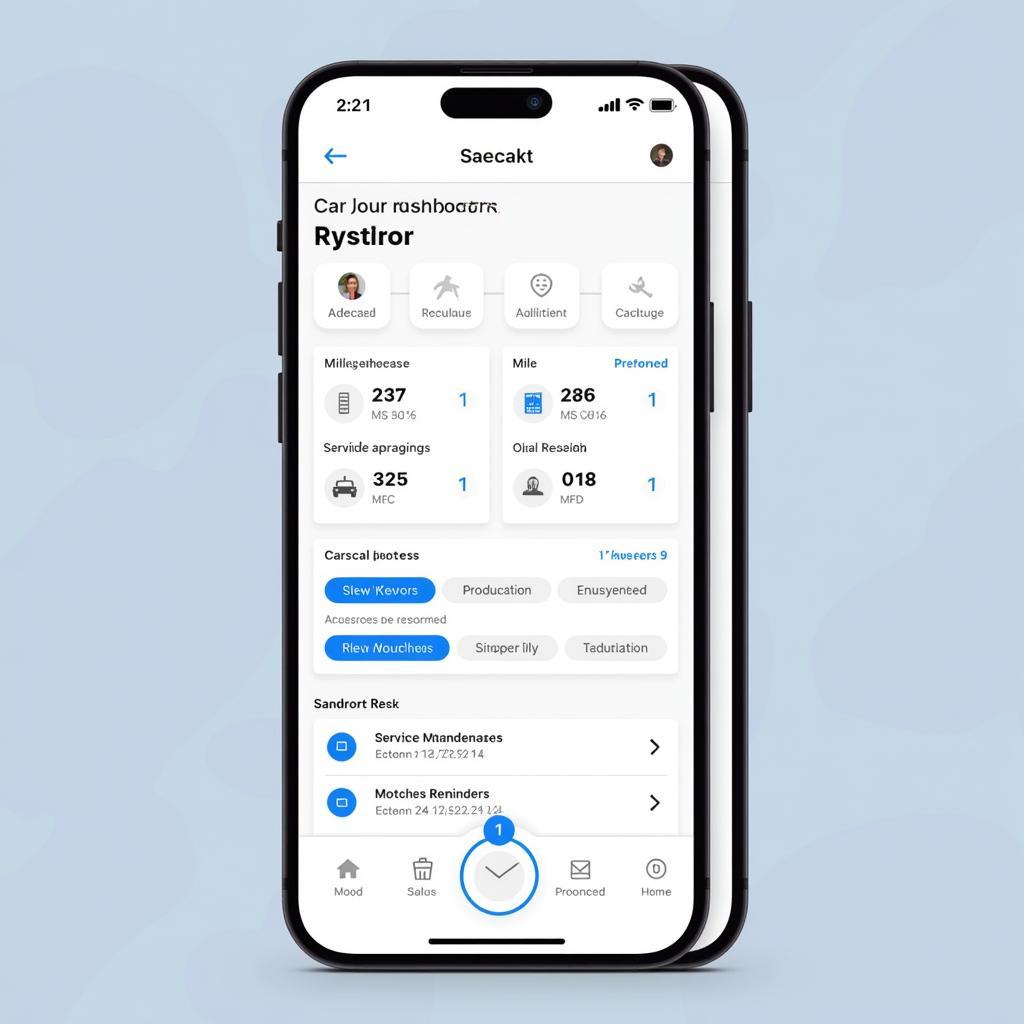Salvage cars can seem like a great deal, offering a significantly lower price tag than their clean-titled counterparts. However, the allure of a bargain can quickly fade when the hidden Problems With Salvage Cars begin to surface. This article will delve into the common issues associated with salvage vehicles, equipping you with the knowledge to make informed decisions and avoid costly mistakes. problems with salvage car
Understanding the Risks: Common Problems with Salvage Cars
Before you jump into the world of salvage titles, it’s essential to understand what exactly a salvage title means. A salvage title is branded on a vehicle that has been declared a total loss by an insurance company. This typically happens due to extensive damage from accidents, floods, fires, or other disasters. While the car may appear repaired, a multitude of problems can lie beneath the surface.
One of the most prevalent problems with salvage cars is hidden structural damage. Even with seemingly thorough repairs, compromised structural integrity can significantly affect the vehicle’s safety and handling. This damage can be difficult to detect without a professional inspection, making it a serious concern for potential buyers.
Another common issue is electrical problems. Water damage, especially in flood-damaged salvage cars, can wreak havoc on a vehicle’s electrical system. Corrosion and short circuits can lead to intermittent malfunctions, complete system failures, and even fire hazards. problems with buying salvage title cars
What are common mechanical problems with salvage cars?
Mechanical problems are another frequent headache for salvage car owners. Damaged engines, transmissions, and other critical components can lead to costly repairs down the line. Even if these parts have been replaced, the quality of the replacement parts and the workmanship of the repairs can be questionable, leading to premature failures and decreased reliability.
Furthermore, obtaining insurance for a salvage car can be challenging and expensive. Many insurance companies are hesitant to cover salvage vehicles, and those that do often charge significantly higher premiums. This added cost can quickly negate the initial savings of buying a salvage car.
How can I minimize the risks when buying a salvage car?
Despite the inherent risks, some individuals are still drawn to salvage cars due to their low price point. If you’re considering purchasing a salvage vehicle, it’s crucial to take precautions to minimize your risk. A thorough pre-purchase inspection by a qualified mechanic is absolutely essential. This inspection should include a detailed assessment of the vehicle’s structural integrity, mechanical components, and electrical system. attorney for car title problems
Additionally, obtaining a vehicle history report is highly recommended. This report can reveal the extent of the damage the vehicle sustained and the type of repairs that were performed. It can also alert you to potential title issues or discrepancies.
“When dealing with salvage cars, due diligence is paramount,” advises automotive expert, John Miller, ASE Certified Master Technician. “A comprehensive inspection and a thorough history check are non-negotiable.”
Are there any specific problems with flood-damaged salvage cars?
Flood-damaged salvage cars present a unique set of challenges. Water can penetrate every nook and cranny of a vehicle, causing extensive damage to the engine, transmission, electrical system, and interior. Mold and mildew growth are also common problems in flood-damaged vehicles, posing health risks to occupants. overheating car problems
“Flood damage is often the kiss of death for a car,” warns Sarah Chen, an experienced automotive appraiser. “The pervasive nature of water damage can lead to ongoing problems that are difficult and expensive to fix.” what are common problems flood cars have
Conclusion: Proceed with Caution
Problems with salvage cars can range from minor cosmetic blemishes to major mechanical and structural issues. While the low price tag may be tempting, it’s crucial to weigh the potential risks and costs before making a purchase. A thorough inspection, a detailed history report, and a clear understanding of the potential problems are essential for making an informed decision. If you need assistance or have further questions, please contact us at AutoTipPro. Our phone number is +1 (641) 206-8880 and our office is located at 500 N St Mary’s St, San Antonio, TX 78205, United States.






Leave a Reply